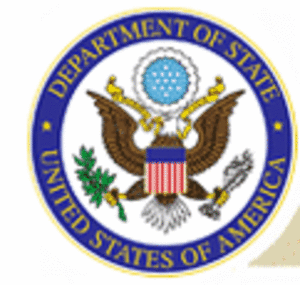Keys to Studying for the FSWE:
– Take at least one practice test.
– Study your weakest subjects
– Don’t try to become an expert
– Use condensed study guides
– Study different formats
Each year, approximately nineteen thousand aspiring diplomats sit for the United States Foreign Service Written Exam (FSWE). It is a grueling, six hour mindbender, covering diplomatic history, international political economy, US Government, and world geography, among other topics.
Many test takers argue that the exam’s subject matter is too broad, and trying to study for it is futile. If you are taking the test tomorrow, they are probably right. Hopefully, you paid attention in school.
But for those who have a little more time to prepare – take heart. If you start today and take the right approach, you can greatly improve your odds.
Take at Least One Practice Test
There is a practice guide available online at the US State Department’s web site. It is a free download, and contains valuable information not only about the exam, but also about the Foreign Service hiring process.
Commercially produced practice guides are also available, and can be purchased online or at your favorite bookstore. Often, these exam guides are more extensive than the State Department’s version, and contain three or four practice exams for each subject.
Spending a few hours on practice exams will pay dividends. After the first practice exam, you will have a much better idea of which subjects you know well, and which will require some study. Taking a practice exam will also help you prepare mentally for the format of the test. Many an examinee has lost valuable time during the exam trying to cope with the initial panic of an unfamiliar test format. Get this out of the way in the comfort of your own home, and you will be that much further ahead on exam day.
Study Your Weakest Subjects First
Practice exams will give you a broad overview of the subject matter to be covered. They will also help you determine which are your weakest subjects.
If you find yourself stumped by fifteen out of seventeen questions relating to US Government structure, then this is a clear indicator of where you need to direct your focus. If you sail through a series of questions about the Viet Nam war, then that’s one less topic you have to worry about.
Review your practice exam results, and then make a list of subjects you feel you need to study. Start the list with your weakest subject at the top of the list, and proceed from there to the subjects that are not as difficult.
Don’t Become an Expert
Once you have determined your weaknesses and composed a hit list, create a schedule budgeting a limited amount of time to each subject. Do not go over the budgeted time. If you have dedicated two weeks of study to the US Constitution and Bill of Rights, then stop after the two weeks are up. You may not feel that you understand everything about the constitution yet, but that’s okay. You will certainly understand more than you did before studying.
The more you know about any given subject, the more you will realize how much you don’t know about that subject. Naturally, you will want to keep studying to fill in all the gaps. Try to avoid this. You don’t have time to become an expert in all of the subjects covered by the FSWE. More importantly, though, the exam is simply not that detailed. A general knowledge of each topic should be ample preparation.
Condensed Guides Work Best
Instead, look for cramming guides. Cliffs Test Preps, Schaum’s Outlines, the Test Yourself series, and Barron’s EZ 101 are examples of the kind of focused, just-the-facts information that will get you up to speed on any topic.
Look for study guides that offer practice questions at the end of the chapter. Read the questions first, then quickly skim the chapter to find the answer. Don’t bother to read the whole chapter if it is even moderately long; just find the answers to the questions, review them in your mind until you can answer each correctly, and then move on to the next chapter.
Which Format is Best For You?
Don’t enjoy reading? Use the study format that works best for you. If you are dyslexic, don’t waste your time hacking through a bramble of books; instead, download a good audio book to your ipod and study during your commute.
Maximize your study time by mixing formats. Books, web pages, podcasts, newspapers, and interactive cd’s are all excellent sources. Too tired to study a book at the end of the day? Then watch a political documentary on the Discovery Times channel. Can’t wear the ipod at work? Then use your lunch hour to play an interactive geography game on the internet.
Generally speaking, the people who fare the best on the FSWE are those who spend time each day learning something new, regardless of whether they have a big test coming up.
Don’t Be Intimidated
Most of the people taking the exam with you will be very smart. Many will have graduate degrees from expensive universities.
Don’t let their fancy pedigrees get you down. The beauty of the Foreign Service Written Exam is that anybody can take it, regardless of formal education or socioeconomic status. If you really want to be a diplomat, and are willing to spend some time preparing for the exam, there is no reason why you can’t pass.
Begin your preparation now, and you will be well on your way to a career with the United States Foreign Service.
